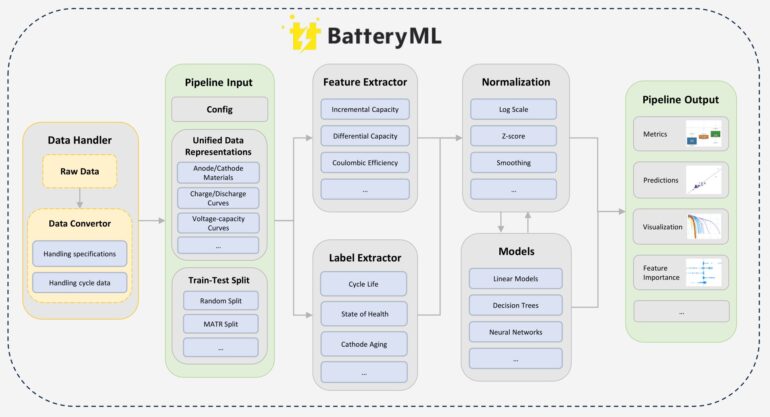TL;DR:
- Lithium-ion batteries are crucial in modern energy storage due to their high energy density and long cycle life.
- Microsoft has introduced BatteryML, an open-source tool for addressing capacity degradation in these batteries.
- BatteryML utilizes machine learning for capacity fade modeling, state-of-health prediction, and state-of-charge estimation.
- This innovation promises to significantly improve battery performance, reliability, and operational life.
Main AI News:
In today’s fast-paced world, lithium-ion batteries stand as the cornerstone of modern energy storage. Their exceptional energy density, extended cycle life, and minimal self-discharge rates have cemented their role across diverse industries, from electric vehicles and consumer electronics to renewable energy grids. Nevertheless, the journey towards perfecting battery technology is not without its hurdles. Among these, capacity degradation and performance optimization have emerged as critical focal points for ongoing research efforts.
The Complex Nature of Capacity Degradation
Capacity degradation in lithium-ion batteries is a complex conundrum, influenced by a multitude of variables such as temperature fluctuations, charge-discharge rates, and the battery’s state of charge. To unlock the full potential of these powerhouses and ensure their sustained efficiency, addressing these variables is paramount. The industry has responded by developing sophisticated battery management systems and harnessing the power of machine learning to enhance prediction accuracy and fine-tune overall performance.
Enter BatteryML: A Beacon of Hope
Microsoft, a leading force in technological innovation, has stepped into the fray with the unveiling of BatteryML. This groundbreaking open-source tool is poised to revolutionize the landscape for machine learning researchers, battery scientists, and materials researchers alike. Its primary mission? To provide a holistic solution to the intricate challenges posed by lithium-ion batteries, with a particular focus on combating capacity degradation.
Harnessing Machine Learning for Optimal Battery Performance
BatteryML harnesses the formidable capabilities of machine learning algorithms to elevate various aspects of battery performance. This includes cutting-edge capacity fade modeling, precise state-of-health predictions, and accurate state-of-charge estimations. By employing these state-of-the-art machine learning methods, BatteryML promises an unprecedented level of accuracy and efficiency in predicting and analyzing battery performance, thereby extending its operational life and bolstering its reliability.
Conclusion:
The introduction of BatteryML by Microsoft represents a significant advancement in battery technology. It addresses critical challenges in capacity degradation, potentially revolutionizing the energy storage market by providing more efficient and reliable lithium-ion batteries. This innovation aligns with the growing demand for sustainable energy solutions, making it a promising development for various industries.

